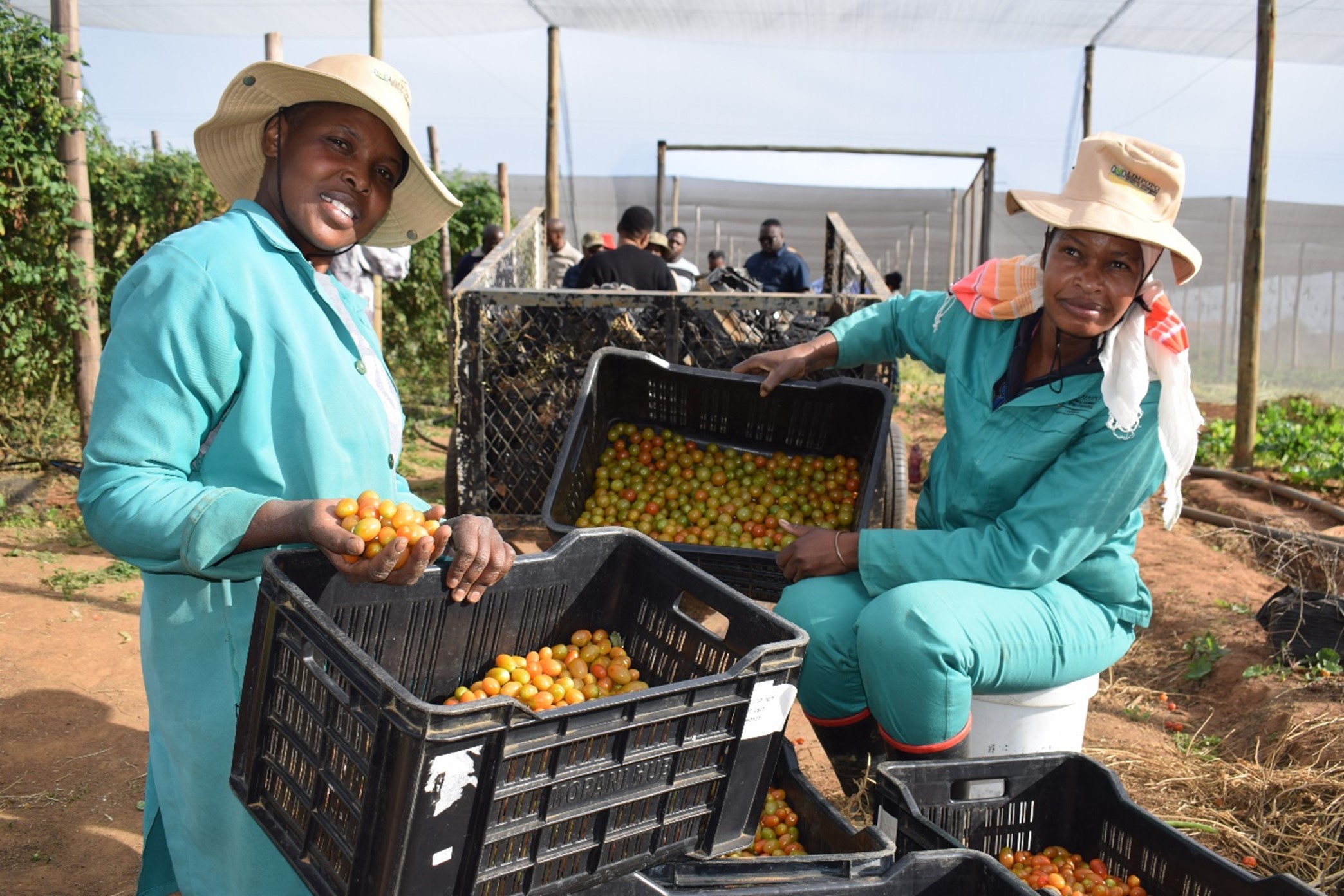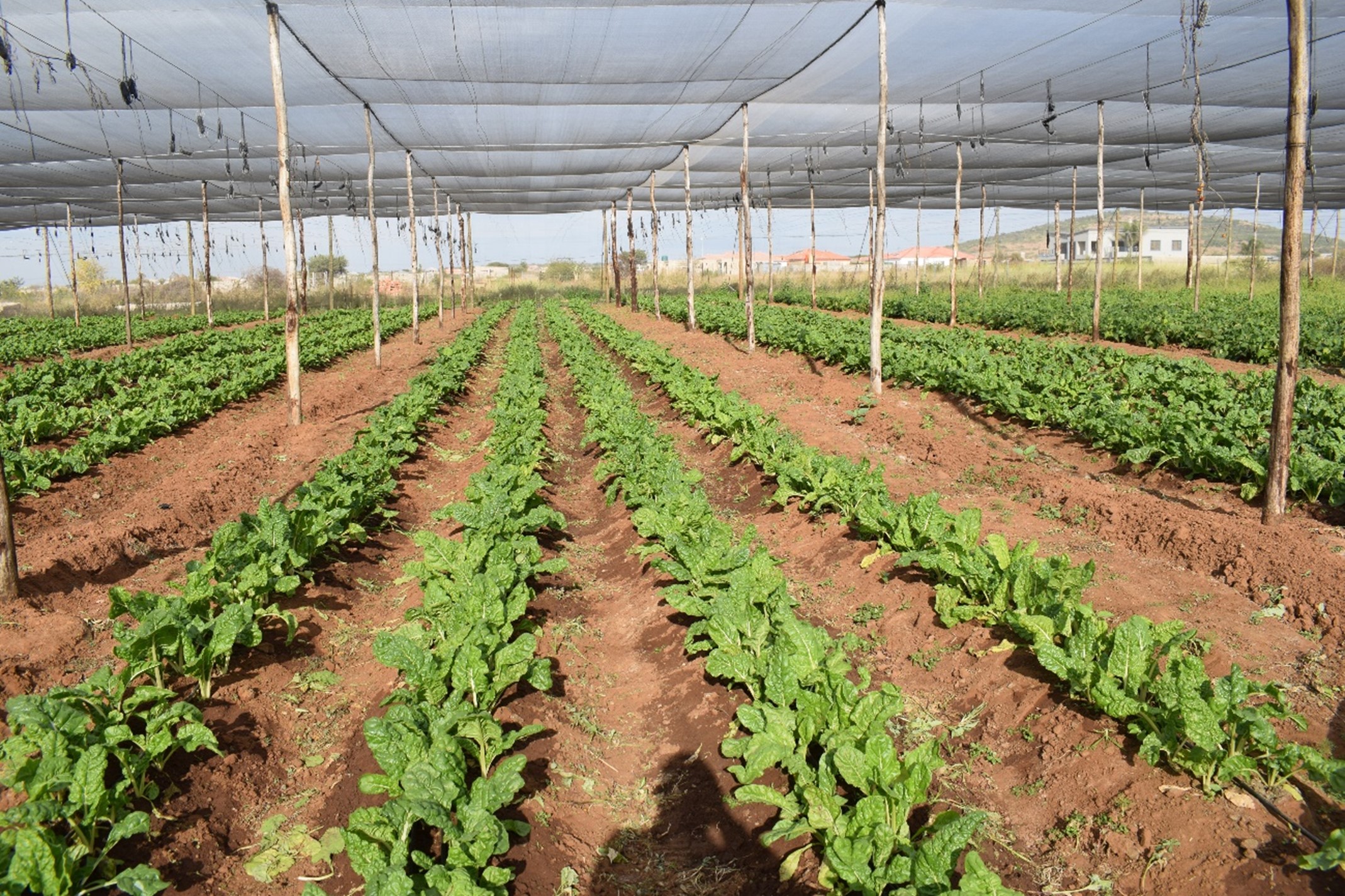By Phelane Phakgadi, Matsobane Manaka and Maphuti Machabaphala

Employees at Ramahwiti farm, Mokgadi Ramaano (left) and Hermina Modiba, sort out cocktail tomatoes.
The Limpopo Department of Agriculture and Rural Development (LDARD), led by MEC Me Nakedi Kekana and the executive management team, have visited Ramahwidi Farming Cooperative in Mamahule Dalmada within the Polokwane Municipality, Capricorn Agro-ecological Zone on 15 May 2025.
Ramahwidi Farming Cooperative cultivates various crops all year-round on a 9-hectare plot. Key crops include spinach, mustard, green beans, and baby marrows. Spinach is the main crop, grown throughout the year, while green beans and baby marrows are cultivated seasonally.
The farm harvests approximately 600 to 700 bunches of spinach daily and up to 50 tons of cocktail tomatoes in summer. Additionally, it produces 250 crates of green beans and 200 punnets of baby marrow each day in peak season.
The cooperative is also exploring innovative methods such as aquaponics—a sustainable system that combines aquaculture and vegetable production. By integrating shade nets and open-field farming, the farmers aim to boost yields and enhance climate resilience.
The Department’s visit was in preparation for the Agricultural Working Group meeting ahead of the G20 Summit, to be held at Ranch Hotel in Polokwane from 26–28 May 2025. This engagement aligns with the broader theme of South Africa’s G20 Presidency under President Cyril Ramaphosa, which emphasizes Solidarity, Equality, and Sustainability. The discussions will focus on these key priorities, among others:
- Inclusive economic growth, industrialization, employment, and inequality
- Food security
- Artificial intelligence and innovation for sustainable development
As part of ongoing support for Ramahwidi Farming Cooperative, the Department has approved the construction of a packhouse with ablution facilities in the 2025/26 financial year. This infrastructure will assist the cooperative in meeting South African Good Agricultural Practices (SA-GAP) compliance standards, improving productivity and access to markets.
MEC Kekana emphasized the importance of engaging directly with cooperatives, listening to their challenges, and ensuring future agricultural support is practical and responsive to the needs of farmers. Her involvement underscores the provincial government’s commitment to sustainable agriculture and inclusive economic development.

Ramahwiti project produces variety of vegetables including spinach.


